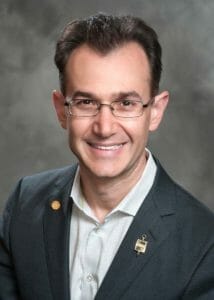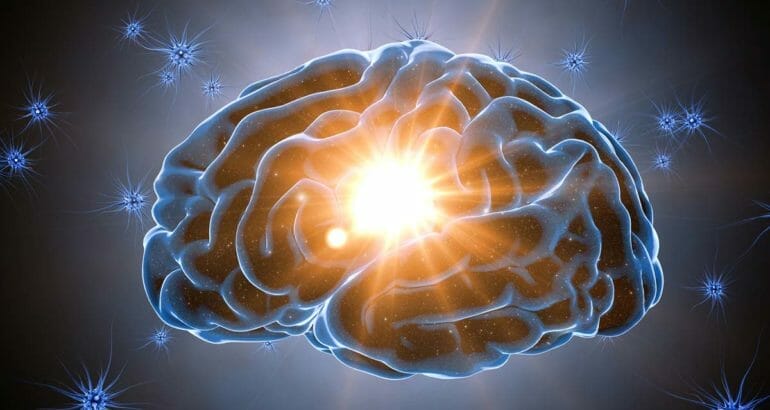Learn the signs and symptoms.
By Stanley P. Fisher, M.D.
Co-Director, Saint Luke’s Marion Bloch Neuroscience Institute
 Concern about developing dementia or Alzheimer’s disease is very common among aging adults. Patients often come to my office worried about their memory loss, or a decrease in their ability to think, plan, reason, speak or be motivated.
Concern about developing dementia or Alzheimer’s disease is very common among aging adults. Patients often come to my office worried about their memory loss, or a decrease in their ability to think, plan, reason, speak or be motivated.
While the decline in memory and cognitive function often causes concern, having one or more of these symptoms does not necessarily mean one has a neurological disease. Some of these symptoms are a result of natural aging and non-neurological causes. Pain, sleep deprivation, depression, poor health and attention deficit all may cause these symptoms.
If your symptoms are not related to other causes and do not significantly impair your day-to-day function, we call it Mild Cognitive Impairment (MCI). However, if symptoms progress to the point at which there is significant impairment in job performance or daily living and you can no longer perform alone, we call it dementia. Dementia is not a diagnosis, but instead a set of symptoms caused by an underlying disease. Alzheimer’s is the most common – but not the only – cause of mild cognitive impairment or dementia.
If you have a persistent concern about yourself or a loved one, it’s time to visit a memory disorders specialist. A specific diagnosis requires a comprehensive evaluation, including brain imaging (MRI, FDG PET and Amyloid PET), blood work, neuropsychological testing and evaluation by a memory specialist. Once a diagnosis is made, treatment options can be explored. In one-third of dementia cases, the cause is something other than Alzheimer’s disease. Diagnosis may be made by a memory disorders specialist or a general neurologist.
Caring for someone with dementia can be challenging. Caregivers should remember that dementia is caused by a disease, and not a flaw in the patient’s character, so don’t take it personally. Caregivers should pace themselves, preparing for a marathon not a hundred meter dash, and establish a circle of care because one caregiver cannot do it alone.
When a loved one has dementia, it’s important to concentrate on the quality of life, rather than a cure, and enjoying every moment, especially the positive experiences, no matter how few. Pitfalls include trying to become a parent to your parent, and trying to explain something using complex reasoning and truthful explanations. Fluctuations are normal, so enjoy good days and survive bad ones.
Loss of memory is not a loss of humanity, so caregivers and health care providers should maintain dignity for the patient and their loved ones. The right care for a patient with dementia includes a multidisciplinary team of healthcare providers that specializes in memory disorders, including neurologists, neuropsychologists, geriatric and neuropsychiatrists, social workers and others.
For more information about the Saint Luke’s memory disorders team, visit saintlukeskc.org.
Dr. Stanley Fisher is also Chair, Division of Neuroscience; Chief, Department of Neurology; Professor of Neurology and Psychiatry, UMKC School of Medicine, and Edward T. Matheny, JR/Missouri Endowed Chair in Neurosciences.





